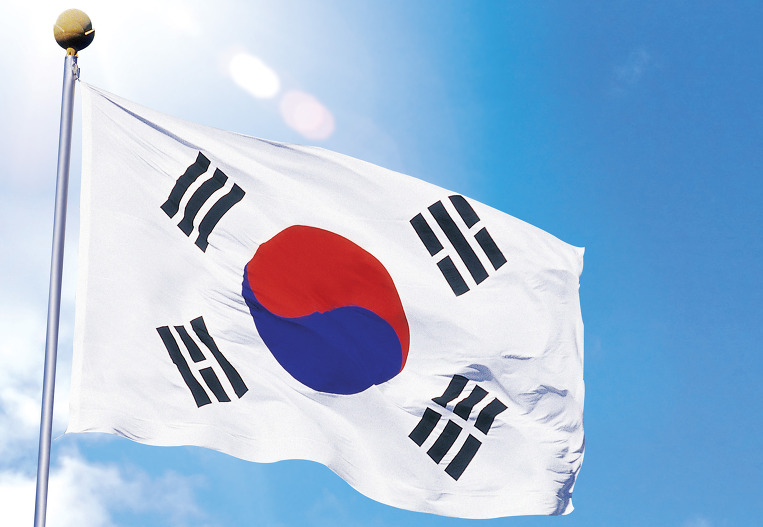The Taegeukgi is the official flag of the Republic of Korea. It was chosen as the official flag of Joseon by Emperor Gojong in 1883 and has been used as the flag for South Korea since 1948. The Taegeukgi is an extremely symbolic flag that expresses the values and ideals of the Korean people while also containing the sorrow caused by the great tragedies in modern Korean history: the 36 years of Japanese colonisation and the Korean War. Even before Korea was founded, the flag was used in protest of the Japanese Empire and for the independence of Korea (especially in the famous March 1st movement). Much like Hangul (the Korean alphabet), the Taegeukgi, designed by Park Young-hyo and commissioned by Gojong, is a very scientific and mathematical flag. Let us analyse each part of the Taegeukgi.
The Taegeukgi is composed of a red and blue taegeuk symbol (“yin(eum)-yang symbol” is technically a misnomer) on a white background, surrounded by four black trigrams (4괘, sa-gwe). The white background symbolises brilliance and purity and the Korean people’s traditional love for peace. The taegeuk symbol symbolises the harmony of eum (blue) and yang (red), an imagery of the interaction between the two extremes and the natural rule of continuous generation and progress seen in the universe.
The trigrams in each of the four corners is called geun gon ri gam (건곤리감, 乾坤離坎) in order and each trigram symbolises a certain characteristic of everything in the universe.
Geun (three lines) symbolises the sky, spring, metal (geum, 금, 金) and humanity (yin, 인, 仁). Gon (six lines) symbolises the earth, summer, earth (toh, 토, 土) and righteousness (eui, 의, 義). Ri (four lines) symbolises the sun, autumn, fire (hwa, 화, 火) and courtesy (ye, 예, 禮). Gam (five lines) symbolises the moon, winter, water (su, 수, 水) and intelligence (ji, 지, 智). The taegeuk lies in the centre of the four extremes in each each corner to establish an infinite harmony and balance.
As you can see, the taegeuk is far more scientific and deeply philosophical than simpler flags such as those symbolising the Sun God (Japan), the number of states (USA) or a composite of three different flags (UK). It is the ultimate flag that prides the Korean people’s wisdom and advanced culture.











